
views
Visit a health clinic like Planned Parenthood.
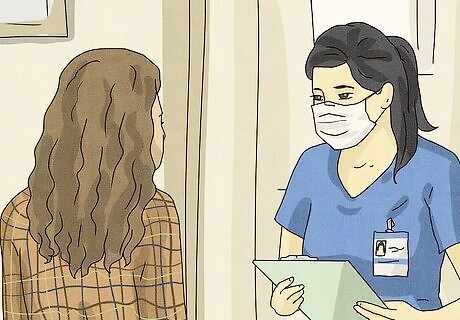
It’s confidential and you don’t have to worry about insurance. Look online for a free or reduced-cost health clinic like Planned Parenthood in your area. Contact the clinic and make an appointment if you need to. Ask the nurse, doctor, or medical provider that sees you at the clinic for a confidential STD test. Some clinics may offer free testing, and others may charge you a fee based on your income so the tests are affordable. If you don’t have any money, ask if you qualify for a free test.
Look for STD testing locations near you.

Find free and confidential sites by visiting https://gettested.cdc.gov/. If you’re in the US, the CDC maintains a list of national STD testing locations that offer free, fast, and confidential testing. Visit the website and enter your ZIP code, city, or state to pull up a list of locations you can choose from. You may not need to provide insurance or pay anything for STD testing at some sites, but be sure to contact them and ask first. If you don’t live in the US, try searching your local government’s website to see if they list medical clinics that offer STD tests.
Go to a state STD clinic.

Many state laws are designed to protect your medical info. Search online for clinics that are run or managed by the state you live in. Contact them to make an appointment and ask about their privacy policy (will they require parental permission). When you show up for your appointment, ask the person who sees you at the clinic for an STD test.
Ask your school nurse about STD testing during health clinics.
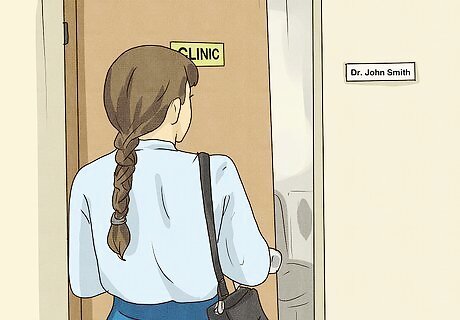
Some schools run them during school hours and they’re usually confidential. If your school holds a health clinic for students, go see the nurse, doctor, or medical professional there. Ask them if they provide STD tests and if they’re confidential. If they are, then you can get one right there on the spot! Your school may provide free testing, but ask if you need to pay or provide insurance information just to be sure. Some schools may even offer STD testing programs you can use to avoid having to tell your parents. Ask your nurse about the confidentiality of the test. Depending on where you live, your parents may be able to access any information in your school file, including your health records and STD history. However, in some places, this info is stored separately from your school records to avoid this conflict.
See your doctor if you’re over 13.
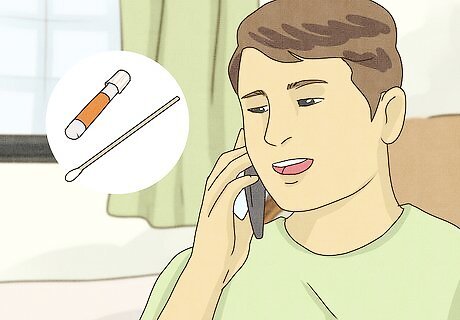
In most states, they’ll test you confidentially. Call your doctor or pediatrician’s office and make an appointment to see them. In many places, as long as you’re over 13, you can ask for a confidential STD test. You may need to use your parent’s insurance, so ask if you do whenever you make an appointment. Call your insurance company if you’re using your parent’s insurance to find out what their privacy policies are. Many medical insurance companies will send out a monthly statement that lists all of the medical services that were charged. The statement could include STD tests that could tip off your parents. However, they may keep STD tests confidential, so it's important to call and find out.
Use an at-home STD test.

Mail in a sample and wait to receive your results. You can purchase at-home STD testing kits over-the-counter at many pharmacies or ordered online. Follow the directions on the packaging to collect a sample and mail it to the address of the lab listed. Be sure to choose to have your results either given to you over the phone or through a secure online portal so your parents won’t see it in the mail. At-home STD tests may not be as reliable as seeing a doctor or health care provider, but they do offer much more privacy. STD testing kits can cost around $150 USD.
Ask about your local privacy laws before getting tested.

The laws can vary slightly depending on where you live. It's a good idea to have this conversation before you consent to any testing or treatment. That way, your doctor or nurse can explain exactly what your rights are and whether there are any steps you need to take to secure your records. For example, in states like California or Delaware, you can get an STD test without your parents knowing as long as you're 12 or older, but in states like Hawaii and Washington, you have to be at least 14. If you live in the US, your doctor or nurse can't tell your parents you're being tested for STDs if they think informing them could put you in danger.
Let your healthcare provider know how they should communicate with you.
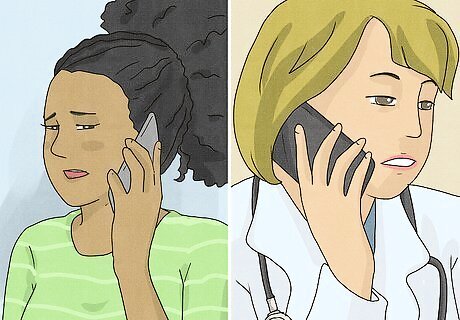
Ask them to call or email you directly. Your doctor may agree to only communicate with you about your STD test in a way that feels private for you. For instance, you may feel more comfortable having them call your cell phone rather than your house phone.
Be prepared for potential costs.
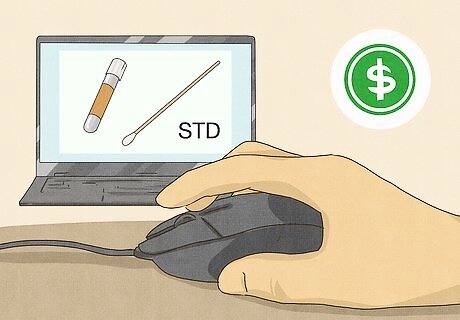
Call to find out if you'll need to pay. Unless you're visiting a clinic that provides free STD screenings, you'll either have to provide health insurance or pay for the tests up-front. Even if you're covered under your parents' insurance, in most places your parents will be notified if a claim is filed on their insurance, so you may prefer to pay for the tests outright. It's a good idea to call ahead to the clinic and talk to them about their insurance and self-pay policies. Search online to try to find clinics that offer low-cost or free STD testing in your area. In some places, like California, you can request where your insurance statements will be sent, so your parents might not be informed even if you use their insurance.
Ask a friend or a trusted adult drive you to your appointment.

Make sure they won't tell your parents where you've been. If you don't drive, getting to and from your appointment could be tricky without your parents finding out. Come up with a plausible reason that you might need to head out for a few hours, then ask someone to drive you to the clinic. Have them wait for you during your appointment so they can bring you home! For instance, you might tell your parents you’re staying the night with a friend or studying at the library. Just keep in mind if they call to check up on you, they might find out that you aren’t really there! If you don't know anyone you can ask, you could use public transportation or a rideshare service like Uber or Lyft.
Consider talking to your parents if you feel safe.

They can help support you and help you get treatment. If you do end up having an STD, it’s okay. No matter what you have, there are medications and treatments that can help you. STDs are much more common than people realize, and it isn’t your fault if you caught one. But you may want to tell your parents so they can help support you emotionally if you’re feeling upset or hurt. Remember that they love you and only want what’s best for you. You may still be able to get treatment from a clinic or doctor without getting your parent's permission.
Get tested at least once a year if you're sexually active.
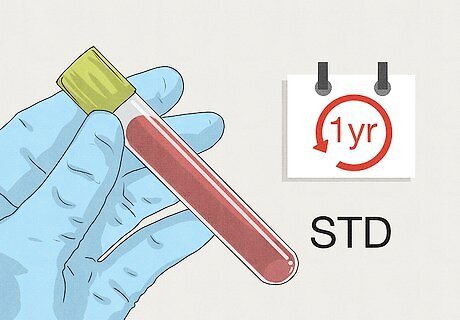
Encourage your partner to do the same. It's important to know the status of your sexual health so you can avoid transmitting an STI to anyone else. At least once a year—or any time you have a new sexual partner—head to the clinic to get tested. You'll appreciate the peace of mind that comes from knowing you're healthy! You should have a test done immediately if you think you could have an STD, like if you have unprotected sex with someone who might be infected or you're experiencing symptoms like itching, burning, or unusual discharge.



















Comments
0 comment